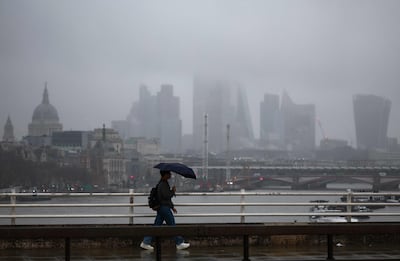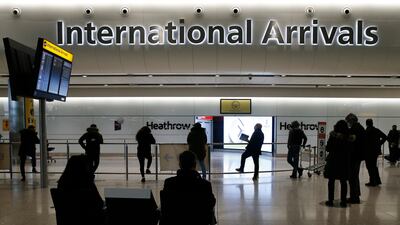Skilled UK visa holders make a substantially greater contribution to the public finances than the average UK-born adult, according to new figures from the Migration Advisory Committee.
The average migrant living in the UK on a skilled worker visa made a positive “net fiscal impact” of £16,300 in 2022/23, it said in its annual report, published on Tuesday. This compares to around £14,400 for a working British adult.
That is principally because most skilled worker visa holders were of working-age and pay tax. Almost two thirds, or 61 per cent of skilled workers, were aged between 30 and 49, while 99 per cent were between 20 and 69.
“The second reason why skilled worker migrants will exhibit substantial positive net fiscal benefit is that the route is designed to attract migrants who are in full-time employment with generally high earnings,” said the report.
“So even compared to a UK adult of the same age, we would … expect significantly higher tax contributions from skilled workers because they will be in employment (rather than some being unemployed or inactive) and earning more.”
The previous Conservative government changed the salary threshold for skilled workers, increasing it in increments from £26,200 a year to £38,700 from April, and to £30,960 for people under the age of 26, in a bid to cut net migration.
The difference between the number of people arriving and leaving the country hit a record 906,000 in the 12 months to June 2023, some 166,000 higher than previously thought, according to revised estimates from the Office for National Statistics (ONS).
The figures have since dropped by 20 per cent and stood at 728,000 in the latest period for the year to June 2024, during the Conservative administration.
Prime Minister Keir Starmer previously announced a major overhaul of the immigration system when he described revised figures estimating that net migration was nearly one million last year as “unprecedented” and “off the scale. He accused the Conservatives of running “a one-nation experiment in open borders”.
However, the Migration Advisory Committee (MAC) warned the UK’s plans to cut net migration are not guaranteed to result in large drops in numbers, cautioning ministers against using a “one-size-fits-all” approach to trying to cut immigration rates.
MAC chairman Prof Brian Bell said net migration figures between 2021 and 2023 were “unusually high” and recent figures have shown it falling. “This has been driven both by government policy changes and by other factors, such as the impact of enhanced enforcement of the genuine vacancy test in the care sector,” he said.
“Whilst we are expecting net migration to fall further, we would caution the government against seeing linking immigration and skills policy as a one-size-fits all approach to bringing down net migration and encourage them to continue to consider individual circumstances within sectors.”
Mr Starmer has repeated promises to cut immigration but stopped short of setting any targets. Although pledging his government would “reduce immigration – legal and illegal”, he was unclear how this would be achieved as he set out a “plan for change” in a speech earlier this month.

Immigration did not feature in six “milestones” he set out so voters could “hold our feet to the fire”. Under repeated questioning from reporters at the time as to why he had not included this commitment, he said cutting immigration “will only be done with a serious plan”.
Despite a decline in visas in the wake of rule changes, migration for care worker jobs is “still substantial”, the MAC report published said.
“If the government want a functioning health and care sector, with lower reliance on immigration, more still needs to be done to fill roles domestically through increased funding to improve pay and conditions. This important trade-off must be considered when designing migration policy and a point we have repeatedly made.”
Conservative leader Kemi Badenoch – who last month admitted her party had failed on migration – told a summit in London on Monday that the UK should start thinking about “how to make sure that we keep good people” and that when it comes to net migration she worries “about who's leaving”.


